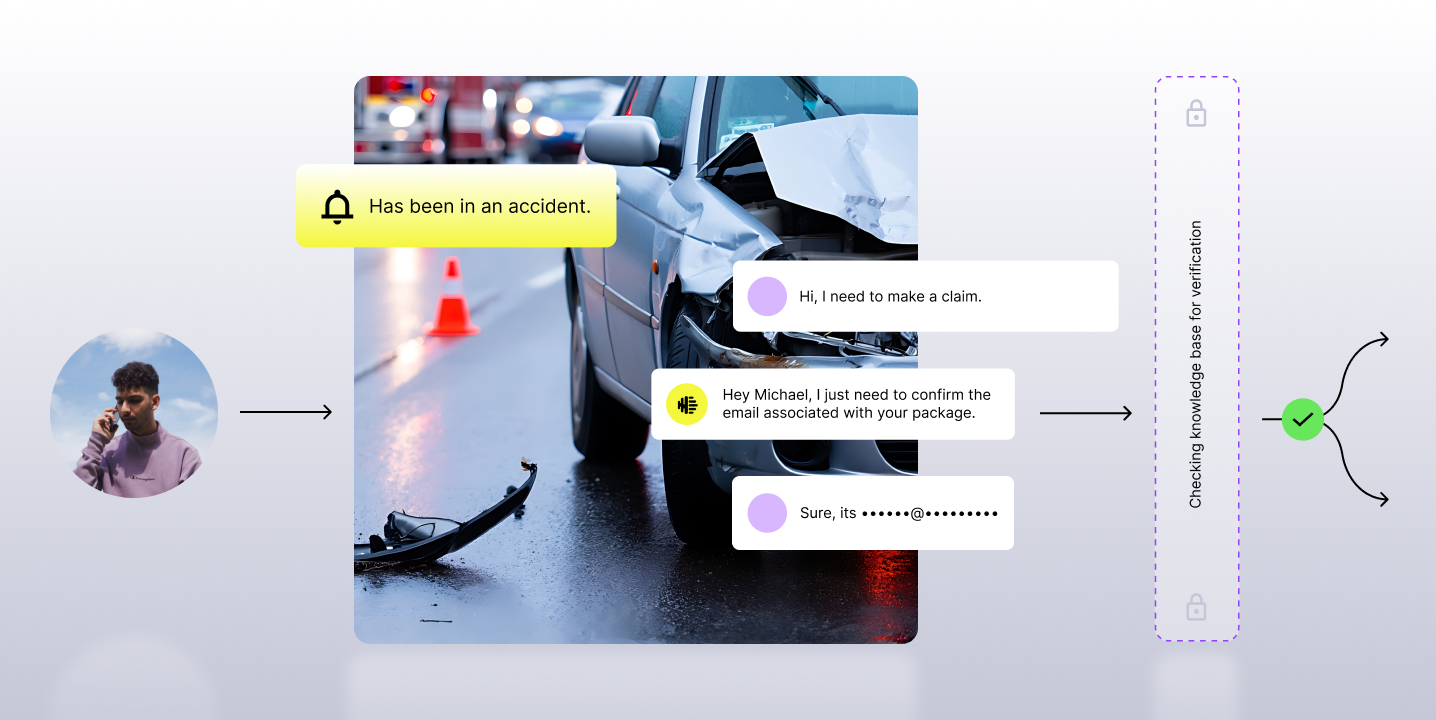This article was originally published in Forbes.
The Covid-19 pandemic has had a very dramatic impact on how contact centers operate, forcing teams to shift to blended work environments in what seemed like a flash. Everything from how teams communicate and collaborate to the way they access insights, evaluate quality assurance, ensure agent performance and inspire people changed.
But something happened along the way, and now, as the prospect of normalcy creeps back into our day-to-day reality, the new normal for the contact center won't be the same.
At the center of this transformation is artificial intelligence (AI). Now, I know what you’re thinking: AI and the contact center have been connected for some time. It’s true, but over the course of the past year, as businesses looked to maintain their contact centers under the most trying circumstances, AI was the solution, but the focus is no longer on full-blown automation through interactive voice response (IVR) and chatbots.
Why the next AI wave is agent performance
Now, rather than replacing agents, companies began adding more and pairing them with AI so they could operate with greater efficiency and personalization than ever, regardless of where they're located.
The focus on AI and the growth of the contact center are highlighted in a new Zogby Analytics study of top technology operators. According to the research, 75% of top technology operators will hire more this year, with most planning to significantly increase budgets at a time when contact centers are fielding more interactions and being viewed as a critical element to business success in the post-pandemic era. Additionally, 64% of respondents see their contact center as a revenue driver, and 85% are optimistic that they'll be a revenue driver in the future.
In addition to adding agents, businesses are also planning to amp up their technology spending. According to the research, AI for agent analytics will be the top technology investment for 2021, with new technologies including agent analytics (35%), self-service (32%), speech analytics (31%) and natural language processing (31%) topping the list.
The goal of these investments is to better measure agent performance and keep them more engaged through regular conversations (58%), provide more personalized coaching and support (57%) and automate workflows to improve agent productivity and time management (54%).
Move from insight to action with built-In QA and coaching workflows
But we need to look beyond these percentages to truly share the impact these moves will have. It wasn’t so long ago that businesses could realistically analyze and score just 1-2% of agent/customer interactions. This exercise was done through tedious, manual quality assurance processes. With AI, this figure jumps dramatically, reaching as high as 100% — and includes insights into a vast array of new areas such as tone, pitch, speech rate and speaker volume in correlation with phrases that signify customer elation or frustration.
This isn’t all either. By gathering these details in real-time, these insights can be acted on immediately to coach agents on opportunities to develop soft skills and improve capabilities like active listening, professionalism, empathy, and deeper discovery of unmet needs.
Over the course of the past 12 months, the world as we know it has changed, and this includes the contact center. What we learned is that having access to a real-life agent is essential. These chatbots and IVRs that I mentioned earlier still have their place, but for the contact center, the secret weapon will be human agents who, armed with the latest insights and feedback, will be impactful and provide consistent customer experiences each and every time. At the center of this will be AI.
Prioritize a fast, accurate, integrated approach
All of this begs the following question: What should AI-embracing contact centers look for in a solution? It comes down to three tenets: speed, accuracy and an integrated approach. In a world where so many teams are hybrid, it’s critical that the organization as a whole is working off the same data and insights, with shared goals around CX and agent performance. Let’s look at each tenet.
When we say speed, we’re talking about the immediate processing of interactions, with rapid results on interaction, sentiment and voice. This unearths new use cases built around real-time, like live coaching and automated insights to personalize the customer experience.
Then there’s accuracy. The difference between 67% and 80% transcription accuracy will shock you. And everything stems from this accuracy — and a few percentage differences in accuracy can completely offset new use cases such as automating your call scoring, reporting on agent performance and assisting agents in real-time — not to mention compliance. Accuracy is key to identifying and mitigating compliance gaps on 100% of calls, which has significant implications.
Finally, an integrated approach means looking at your entire tech stack — data in and out, your CRM, your CCaaS and more — and connecting them seamlessly to one another. An integrated approach is the final piece for truly automating QA processes and coaching programs. For example, AI can auto-suggest which agents to coach on what topics and help supervisors personalize coaching sessions in minutes, which is the precursor to coaching agents live on calls.
In the end, it’s important to remember that the decisions you make now on your technology will impact you years down the line. Prioritize real partnership with teams that can get behind your brand; invest heavily in helping you handle change management, your onboarding and training; and who show a willingness to develop products and features that meet your long-term needs.
Now, go humanize your contact center.

















